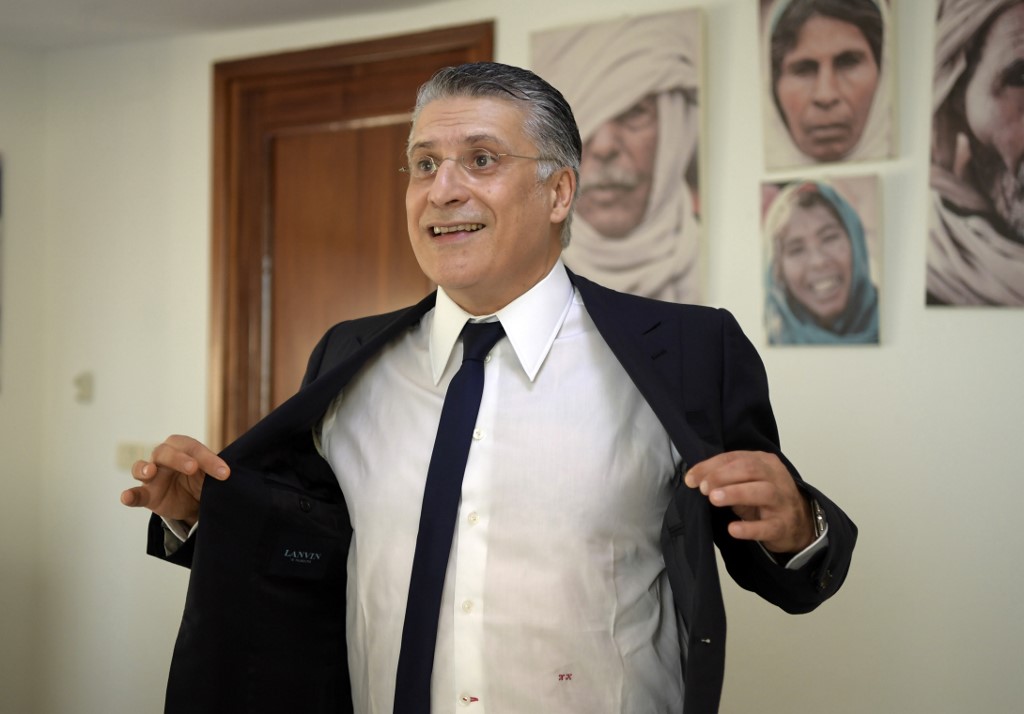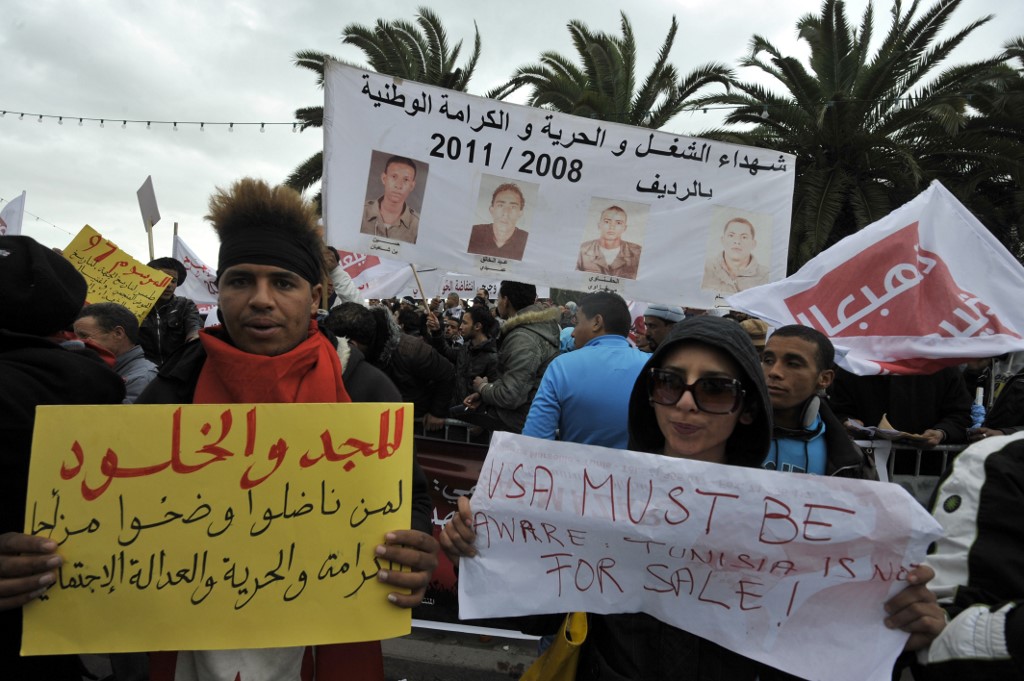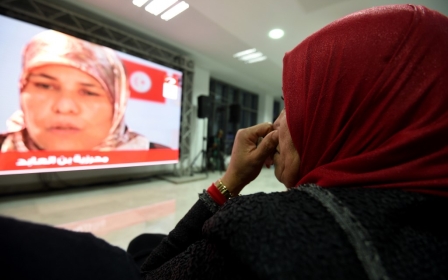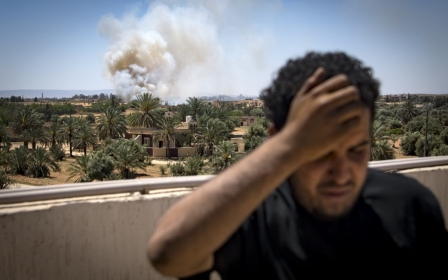Why did Tunisian MPs limit who can run for office? Depends on who you ask
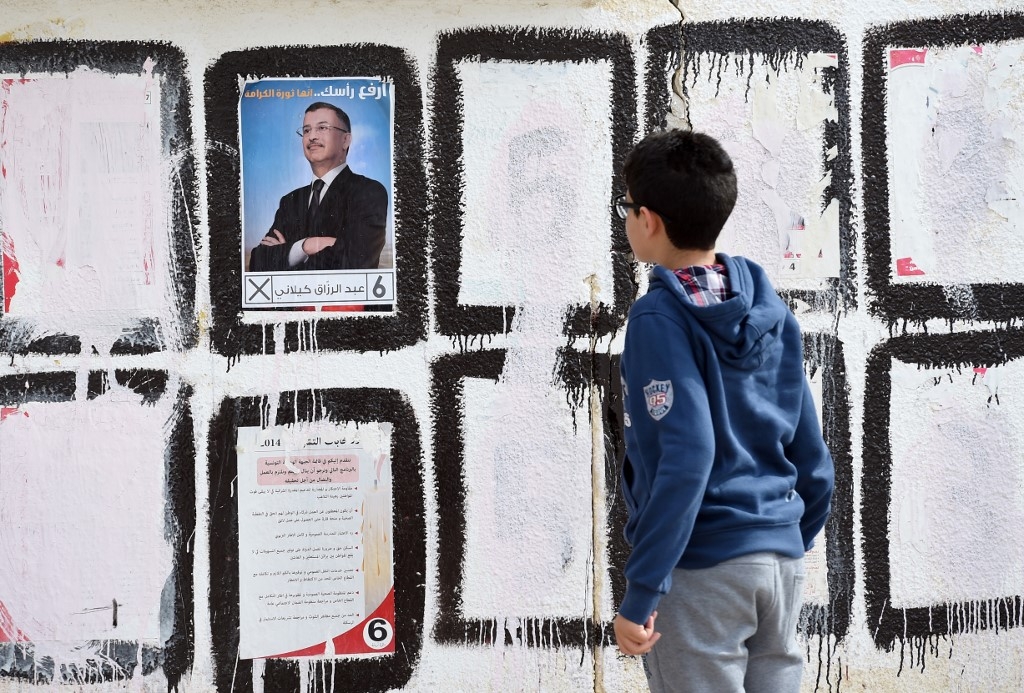
An amendment to Tunisia's electoral law that passed through parliament this week blocking certain individuals from running in upcoming elections will have far-reaching consequences, say Tunisian MPs and civil society leaders.
But what those consequences will be has them split: some believe the changes will protect Tunisia's democracy, while others say it reminds them of the one-party politics that dominated before the revolution.
With little debate of the modifications that make the law controversial, Tunisian MPs voted 128 in favour and 30 against, with 14 abstentions, to pass through the changes that prohibit individuals who have received or provided charitable donations to Tunisians within the past year from running in elections.
Candidates who have received foreign funding, have a criminal record or have violated restrictions banning discourse that contradicts democratic rules and constitutional principles will also be banned.
The amendments are expected to exclude Olfa Terras-Rambourg, who is a patron and member of a charity called 3ich Tounsi. They also exclude Abir Moussi, who served in former president Ben Ali's RCD party, and businessman Nabil Karoui from participating in legislative and presidential elections scheduled for the autumn.
New MEE newsletter: Jerusalem Dispatch
Sign up to get the latest insights and analysis on Israel-Palestine, alongside Turkey Unpacked and other MEE newsletters
It is Karoui, who has been topping opinion polls, who has garnered the most attention in the vote's wake. Much of the reporting has framed the amendment as an outright bar to the 55-year-old media mogul from running.
A former supporter of President Beji Caid Essebsi, Karoui has been accused of using his TV channel, Nessma TV, to play up his charity work as he has been campaigning to replace the president.
The governing parties did an opinion poll which shows that the people hate them
- Tunisian MP Yassine Ayari
Independent MP Yassine Ayari, who represents Tunisians living in Germany, voted against the legislation, which he said was pushed by the ruling parties that are threatened by Karoui's popularity.
"The governing parties did an opinion poll that shows the [Tunisian] people hate them," Ayari said. "The only solution for them to stay in power was to exclude their serious competitors in the elections."
Karoui, he said, regularly appeared on Nessma TV while he was a central committee member for Nidaa Tounes, Essebsi's secular party, which has been governing in a coalition with the Islamist Ennahda party since 2015.
"At that time, the government had no problem with him. He was their friend. But when he announced himself as presidential candidate, then he became a problem," Ayari said.
The amendments will also exclude the lawmakers who were the big winners in elections last year, he said. "The municipal elections of 2018: Who won? Independents. How do they exclude independents? By making a minimum threshold of three percent of votes for candidate lists to be accepted."
The only hope of keeping the law from going into effect, said Ayari, is to prove that it is unconstitutional.
"Today, we have 33 PMs who've signed a letter saying this law does not respect the constitution. We've sent it to the Provisional Committee for Monitoring of the Constitutionality of Laws. Now we wait."
Closing loopholes
Directly across the hall in parliament from Ayari's office, Khawla Ben Aicha, an MP who represents Tunisians in France with the Machroua Tounes party, supported the changes, which she says will protect Tunisia's democracy and correct a problem lingering since the early days of the revolution.
We are against calling this an exclusion law, because we were fighting to not exclude people
- Tunisian MP Khawla Ben Aicha
The electoral law passed in 2011 excluded candidates from Ben Ali's RCD party, said Ben Aicha. When Tunisia's new constitution was adopted in 2014, that law became unconstitutional yet remained in place as historic elections were held.
Specifically, Ben Aicha is focusing
on the law that excludes former RCD members from running voting centres.
"We are against calling this an exclusion law, because we were fighting to not exclude people," she said. "We targeted this article because it's anti-constitutional, and even the ISIE [the Independent Higher Body for Elections] asked that it be removed."
At the same time, Ben Aicha said Karoui and Terras-Rambourg were problematic candidates. Karoui was on his own TV channel for more than 150 hours last year, she said, while she questioned why 3ich Tounsi had spent five million dinars ($1.7m) on TV advertising, something forbidden for political parties to do.
"So you cannot do this in the year before elections, and three months before the elections say, 'OK, I'm a candidate now,'" she said.
Like Ben Aicha, Samir Dilou, an MP with Ennahdha, said the logic behind the changes was to protect the electoral process from corrupt money and to close a legal loophole. He was wary of describing the reforms as an exclusion law, as it has been called by its detractors.
"This depends on the angle from which we look. Every law that sets out conditions is necessarily exclusionary for those who do not respect its terms," Dilou wrote in a message.
He added: "It is unreasonable to accept unequal competition between those who respect the law under penalty of sanctions and those who exploit the loopholes of the law to practice deception, taking advantage of the economic difficulties experienced by citizens because of the difficulties of democratic transition."
Outsiders wanted
But there are others who remain critical of the legal changes.
Adnane Hajji, who was an independent MP until he co-founded the Tunisia Forward Party in March, questioned the timing of the process and the way it had unfolded.
At first, he said, the amendments were about ensuring an electoral threshold, requiring candidates to achieve three percent of the electoral vote to enter parliament. Then additional clauses were added later and the entire package was pushed through.
The vote, he pointed out, was held only a month before the electoral commission is set to begin accepting applications for candidates planning to run in the legislative elections.
"They could have brought this law at the beginning of this parliamentary mandate period," he said, referring to when the current MPs took their seats in early 2015.
"We could have discussed it, so that everyone in parliament would be clear and on the same page. We could have arrived at an agreement."
The current parties in power - they lied in their electoral programmes, and gave people a lot of promises, but nothing came of it
- Tunisian MP Adnane Hajji
His constituents in Redeyef, a poor city in the country's interior where trust in lawmakers is low after years of marginalisation, want alternative leaders other than those in the current system and are therefore "not happy" with the electoral amendments.
"The current parties in power - they lied in their electoral programmes, and gave people a lot of promises, but nothing came of it," Hajji said. "Ennahdha in 2014 said they would create work for 400,000 Tunisians. Where is that? The level of unemployment is rising.
"They are looking for an improvement of their material situation. They ask me, 'Are there any new development projects? Is there any investment coming? Are there any recruitment campaigns? Are there new health projects? Or transport?'"
Selim Kharrat, president of the Tunis-based independent monitoring organisation Al Bawsala, said the real beneficiaries of the law are not Tunisian citizens but lawmakers currently in power who pushed for the changes.
Kharrat said that the legislation was pushed through rapidly, with some MPs given very little time to review the proposed amendments.
"We know that parliament could have had plenty of time to discuss these changes, but we at Al Bawsala learned that some MPs only received the paper outlining the amendments one hour before the vote," noting that while the debate on the law took place three months ago, the add-on amendments were not debated.
He said he believes that the governing parties, especially Nidaa Tounes, fear losing power to candidates outside of their coalition because it would expose them to accountability, which he believes their members have avoided so far.
"Those who are afraid are those who have power. When you have corruption cases and open legal files on [some of their members] that are pending, they try to build walls to not let an outsider into the presidency. It's an existential threat," said Kharrat.
Members of Ennahdha may not be facing corruption cases, he added, but their more experienced leaders have a fear that the persecution they experienced for decades before the 2011 revolution will repeat itself.
"Ennahdha's mission is to guarantee that they stay in power. This is the best protection from going back to jail," where many Ennahdha activists were sent under the autocratic leadership of former presidents Bourguiba and Ben Ali.
The amendment must be signed by the president before it can go into effect.
Middle East Eye delivers independent and unrivalled coverage and analysis of the Middle East, North Africa and beyond. To learn more about republishing this content and the associated fees, please fill out this form. More about MEE can be found here.


